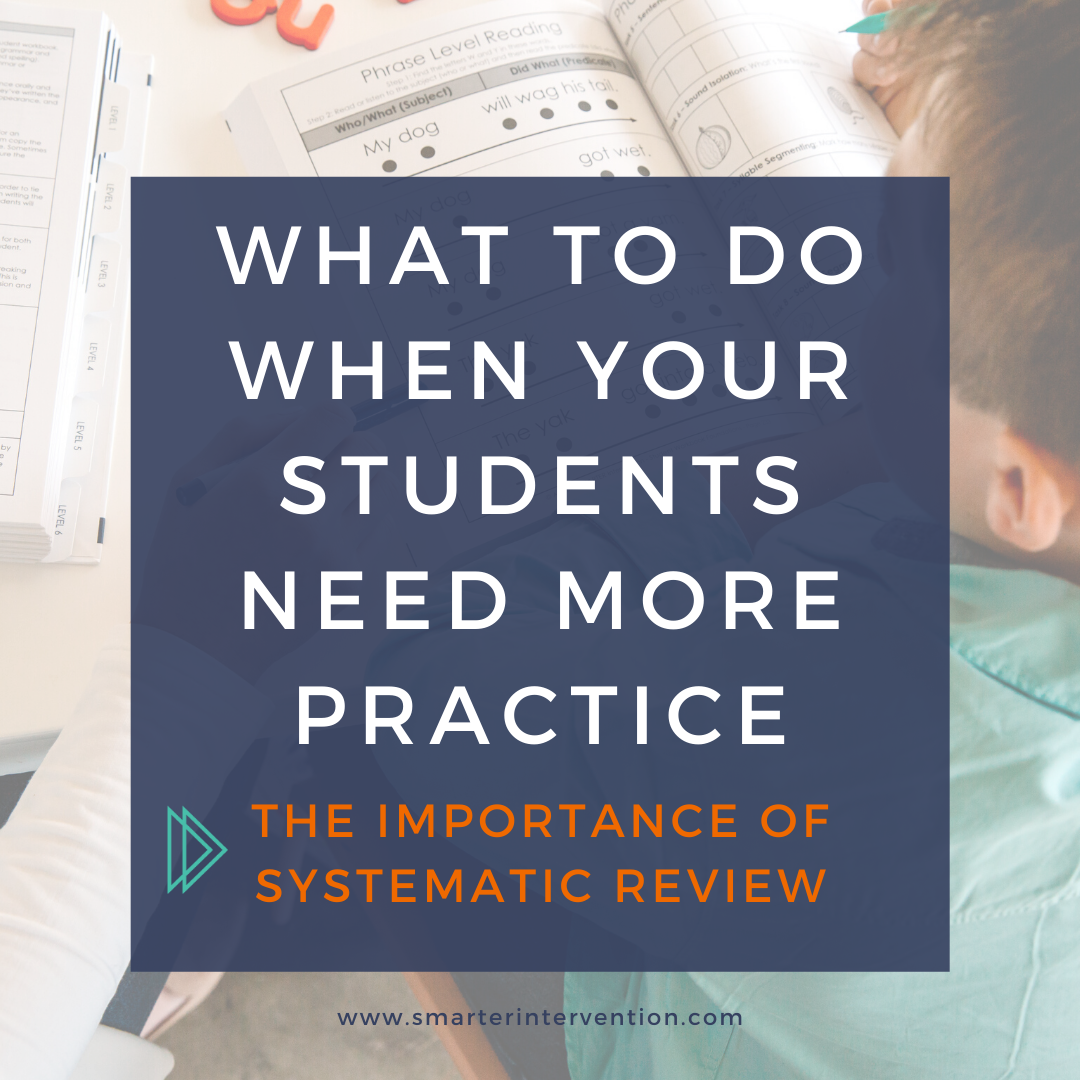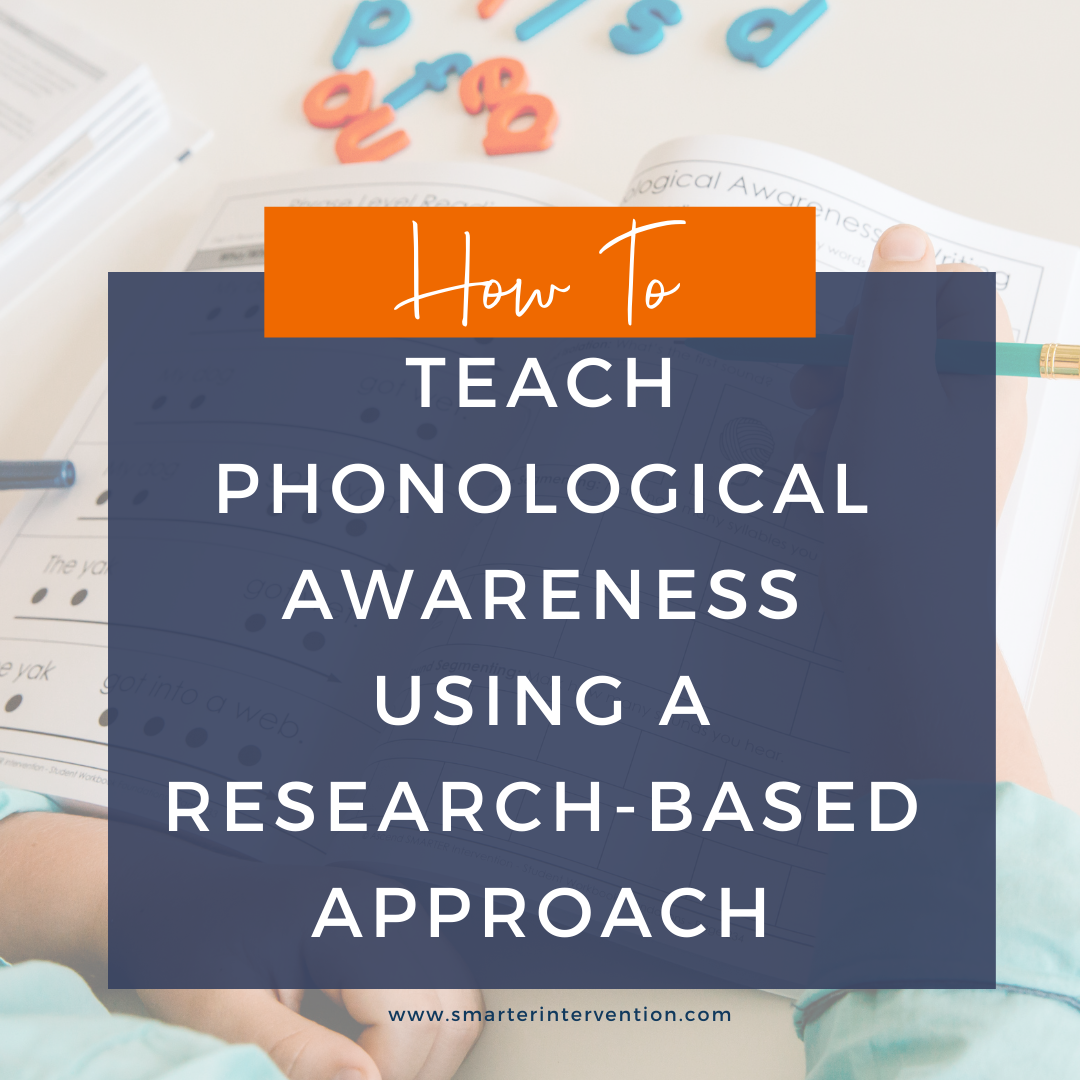Science-based literacy resources and articles
for families, educators and schools
Search by Category:
Categories
- Advocacy
- Authentic Literature
- Business
- Comprehension
- Data Tracking
- Differentiation
- Dyslexia
- Evaluation and Assessment
- Executive Functioning
- Games & Activities
- Helping My Child At Home
- How To
- IEP/504 Plan
- Lesson Planning
- Math
- Online Intervention
- Organization
- Parents
- Phonics
- Phonological Awareness
- Reading Comprehension
- Reading Fluency
- Research
- SLP
- Spelling
- Vocabulary
- Writing
How to Create SOR-Aligned Lesson Plans for 3rd & 4th Grade Using Your Students Favorite Books
You may have heard that 3rd grade is the year where students transition from learning to read to reading to learn. But how exactly do we support that transition for students who are still working on the foundations?
Today, we’re sharing about how you can use your students’ favorite books to create evidence-based lesson plans that align with the Science of Reading so that your 3rd and 4th graders can begin to generalize those foundational skills to higher-level reading.
How To Use Your Students’ Interests to Improve Their Literacy Skills
Raise your hand if you've ever been told that your literacy instruction is boring. 🙋♀️ If you're raising your hand - you're definitely not alone.
It can be difficult to teach these skills to students in a way that feels engaging and exciting because let's face it - the skills that we have to teach aren't very exciting. Luckily, there is a solution.
By putting lessons together in a way that focuses on students' interests, you can absolutely change the game in your literacy instruction. Keep reading to learn our step-by-step process for putting these lessons together.
Should I Teach Phoneme Segmenting?
Phoneme segmenting is essential to spelling success. In order to spell a word (especially an unfamiliar one!) we first need to identify what sounds we hear. Keep reading to learn more about the importance of phoneme segmenting and how you can incorporate this instruction into your lessons!
Should I Teach Phoneme Isolation?
Phoneme isolation is a critical skill in both reading and spelling.
It helps us sequence the sounds we hear when we sound words out. It allows us to differentiate between things like stop and spot. It can help students recognize their errors in spelling, too.
Improve spelling accuracy with phoneme isolation! Learn why it's crucial for reading and spelling success. Discover practical strategies and activities to support sound isolation in our blog.
Should I Teach Auditory Discrimination?
Do your students ever mix up certain sounds? Maybe they mispronounce words, like calling milk "melk" or they spell "met" as "net."
Enhance your students' auditory discrimination skills for better pronunciation and spelling! Explore why this skill is crucial for reading and spelling accuracy. Get practical tips and resources to support auditory discrimination in this blog.
Should I Teach Sentence Segmenting?
Phonological awareness skills are often taught to support reading and spelling. But…did you know that some PA skills can directly support reading comprehension as well?
Discover how sentence segmenting enhances literacy skills beyond spelling and reading. Learn how to improve memory, comprehension, and writing structure.
Should I Teach Phoneme Manipulation?
Say this word without the first sound…
Say this word backward.
Change the last sound in this word…
Are phoneme manipulation skills really necessary?
In short, yes. Keep reading to learn more!
Should I Teach Phoneme Blending?
Raise your hand if you've ever told a student to "sound it out" when they were reading.
We imagine just about everyone's hand went up just then. And if this isn't something you've said to students, it's incredibly likely they've heard it from someone else.
But how exactly do we teach students to do this? Do we need to teach students to do this? Keep reading for answers to all of your phoneme blending questions!
Should I Teach Syllable Blending?
You might be wondering when it would be important to teach syllable blending. Is this a skill students even need?
The answer to that question is yes. This is a skill that students, in fact, need. But there are specific times when teaching this skill will be most important. Keep reading to learn more!
Should I Teach Rhyming?
You may be wondering if teaching students to rhyme is really necessary. Recently, research has been mixed on whether or not we should be targeting this skill in our instruction.
The argument here is that it isn't necessary to teach because it doesn't directly translate to reading in the same way blending does.
So…should we be teaching rhyming? Keep reading to find out.
How Do I Fit It All In? Organizing Your Literacy Block to Align with the Science of Reading
Following the Science of Reading requires many lesson components we should be including in our literacy instruction.
Between explicitly teaching the 5 Core Components of Literacy, targeting student needs, tracking data, and pulling review activities - it can definitely feel like a lot!
But here’s the thing, research-based instruction that aligns with the Science of Reading does not have to be hard. All you need is a clear framework you can use to plan your lessons in alignment with research-based principles so that you know you are covering everything you need without it feeling super overwhelming!
How to Build Fluency & Comprehension at the Passage Level
When working with students, our end goal is always that they can functionally read and write. A big part of this is the ability to read at the passage level and derive meaning from the text.
Luckily - building fluency and comprehension at the passage level doesn’t have to be hard. Keep reading to learn how you can incorporate this instruction into your reading lessons!
How to Get the Most Out of Your Literacy Lessons
Have you ever thought to yourself - “How in the world am I EVER going to fit everything into my lessons?!” or maybe, “How can I better support my students?”
We certainly have!
The great news - we can actually make our interventions lessons MORE effective WITHOUT adding a ton of additional time. Keep reading to learn how!
How To Explicitly Teach Phonics Rules
It’s no secret that research tells us we need to teach rules explicitly - but what exactly does that mean?
Today, we are going to break down exactly what “teaching rules explicitly” means as well as walk you through how you can use this approach in your lessons!
What To Do When Your Students Need More Practice: The Importance of Systematic Review
Have you ever looked through your students’ lesson data and thought - “gosh, they just aren’t getting this?”
We’ve all been there. Today - we are going to break down what you can do when students need more practice and the importance of systematically reviewing previously learned concepts.
How To Fit Phonological Awareness into Your Reading & Writing Lessons
It is no secret that phonological awareness skills are a key component to reading and spelling, but for a long time it felt like the way to effectively fit these drills into our lessons WAS a secret! After a while of looking at the data (and some trial/error!), we found a way that worked for us and want to share it with you!
How to Teach Phonological Awareness using a Research-Based Approach
First things first, what is phonological awareness?
We’re so glad you asked, at the simplest level - it’s understanding the sounds of our language. It includes skills that we need to break words up into individual sounds and blend sounds together in order to “sound words out.” Phonological awareness DOES NOT require any knowledge of letters. Students could complete phonological awareness drills completely in the dark (meaning they don’t need to be reading or recognizing letters at all). The number of sounds in words and letters in words are not always the same!
How to Teach Phonological Awareness Systematically
We always knew of the importance of phonological awareness in developing literacy skills and we knew that under-developed phonological awareness skills are a critical factor in students with reading struggles such as dyslexia and are a common issue for students with speech-language disorders.
If you know us at all, you know that we always frame everything from the literacy processing triangle lens.



















